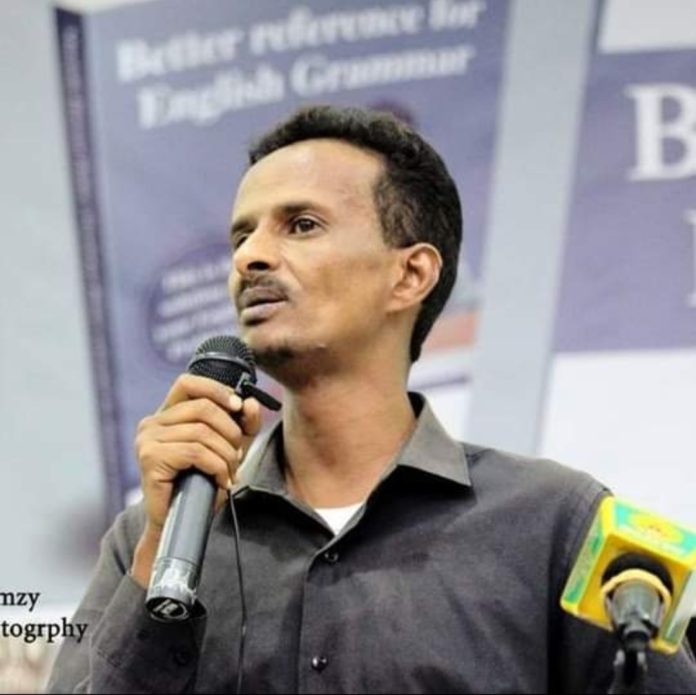_______________________________________
Introduction:
In the intricate and multifaceted tapestry of international relations, diplomacy emerges as the linchpin that weaves together the fabric of global interactions. It serves as a nuanced reflection of the ever-evolving dynamics between nations, offering insights into the complexities of their relationships and the trajectory of their engagement. Against this backdrop of diplomatic intricacies and geopolitical nuances, the recent acceptance of Ethiopia’s ambassadorial credentials by the esteemed President of Somaliland emerges as a beacon of significance in the vibrant landscape of the Horn of Africa’s diplomatic arena.
This diplomatic gesture, characterized by its gravity and symbolism, transcends mere protocol to signify a pivotal moment in the historical continuum of Ethiopian-Somaliland relations. It underscores a departure from conventional diplomatic norms and signifies a bold step towards forging new pathways of cooperation and collaboration. As such, this article embarks on a comprehensive exploration of the profound implications encapsulated within this diplomatic exchange, delving into its far-reaching ramifications and the potential it holds to catalyze deeper engagement and partnership between Ethiopia and Somaliland.
Historical Context:
__________________________________
The historical tapestry woven between Ethiopia and Somaliland is rich with threads of cultural, economic, and political interconnectedness, tracing back through the annals of time to epochs long past. While Somaliland may not enjoy international recognition as an independent state, its journey as a distinct entity with its own governance structure and identity began with its bold proclamation of independence from Somalia in the year 1991.
Ethiopia, on the other hand, stands as a formidable regional powerhouse, wielding influence and prominence that extend far beyond its borders. Renowned for its historical resilience and cultural diversity, Ethiopia has served as a pivotal actor in the intricate mosaic of the Horn of Africa’s geopolitical landscape. Its connections to the Somali region, both historical and contemporary, have left an indelible mark on the shared narratives and destinies of the people inhabiting this vibrant and dynamic corner of the African continent.
Throughout the annals of history, the ties binding Ethiopia and Somaliland have been forged through a myriad of shared experiences, interactions, and exchanges. These connections, rooted in centuries-old traditions of trade, migration, and cultural diffusion, have laid the foundation for a relationship characterized by mutual respect, understanding, and cooperation. Despite the challenges and complexities that have punctuated their historical trajectory, both nations have demonstrated remarkable resilience and a steadfast commitment to navigating the ever-changing currents of regional geopolitics with grace and diplomacy.
Against this backdrop of shared heritage and intertwined destinies, the recent acceptance of Ethiopia’s ambassadorial credentials by the esteemed President of Somaliland serves as a poignant reminder of the enduring bonds that unite these two nations. It is a testament to the resilience of their historical ties and the unwavering commitment to nurturing a relationship grounded in mutual benefit, shared prosperity, and collective advancement. As such, it heralds a new chapter in the saga of Ethiopian-Somaliland relations, one defined by cooperation, collaboration, and the pursuit of common goals for the betterment of both nations and the Horn of Africa region as a whole.
Diplomatic Significance:
____________________________
The recent acceptance of Ethiopia’s ambassadorial credentials by the esteemed President of Somaliland transcends the realm of mere diplomatic formality, heralding a new era of engagement and cooperation between the two nations. At its core, this significant diplomatic exchange serves as a powerful symbol of the shared commitment of Ethiopia and Somaliland to foster deeper ties and meaningful collaboration across a spectrum of shared interests and concerns.
By extending a warm welcome to Ethiopia’s ambassadorial representative, Somaliland’s President reaffirms the nation’s steadfast dedication to engaging in constructive dialogue and partnership with its neighbors and regional stakeholders. This gesture underscores Somaliland’s proactive approach to diplomacy, demonstrating a willingness to break free from the shackles of historical precedent and explore innovative avenues for mutual benefit and shared prosperity.
Moreover, the acceptance of Ethiopia’s ambassadorial credentials by Somaliland’s highest authority represents a departure from traditional diplomatic norms and protocols, signaling a bold step towards forging a more inclusive and dynamic diplomatic landscape in the Horn of Africa. In embracing this diplomatic overture, Somaliland not only affirms its sovereign status and independent agency but also paves the way for a more equitable and inclusive approach to regional diplomacy
Furthermore, this diplomatic exchange carries profound implications for the broader geopolitical dynamics of the Horn of Africa region. It serves as a beacon of hope amidst the tumultuous currents of regional politics, offering a glimmer of optimism for peaceful coexistence, dialogue, and cooperation in an area often characterized by instability and conflict
In essence, the acceptance of Ethiopia’s ambassadorial credentials by Somaliland’s President represents a significant milestone in the evolving narrative of Ethiopian-Somaliland relations. It is a testament to the power of diplomacy to transcend barriers, bridge divides, and forge lasting bonds of friendship and partnership. As both nations embark on this journey of collaboration and mutual respect, they stand poised to unlock a wealth of opportunities for shared growth, prosperity, and development in the Horn of Africa and beyond
In the intricate web of diplomatic relations and geopolitical dynamics, recent developments concerning the jurisdictional status of Somaliland vis-à-vis the Federal Government of Somalia (FGS) and Ethiopia’s diplomatic presence in Hargeisa have sparked considerable debate and speculation. The assertion that the FGS lacks jurisdiction over Somaliland, coupled with Ethiopia’s establishment of a full-fledged embassy in Hargeisa rather than a consulate as suggested by the FGS, has raised eyebrows and drawn attention to the nuanced nuances of diplomatic protocols and international recognition.
At the heart of the matter lies the complex relationship between Somaliland and Somalia, two entities with distinct governance structures and divergent paths since Somaliland’s declaration of independence from Somalia in 1991. Despite persistent efforts by the FGS to assert authority over Somaliland, including claims of jurisdictional control, the reality on the ground paints a different picture. Somaliland has effectively operated as an autonomous region with its own government, institutions, and security apparatus, garnering domestic and international recognition for its governance achievements and stability.
Ethiopia’s decision which establish a full-fledged embassy in Hargeisa further underscores the evolving dynamics in the Horn of Africa region. By elevating its diplomatic presence to ambassadorial status, Ethiopia reaffirms its commitment to engaging with Somaliland on equal footing, irrespective of the FGS’s stance. This move not only acknowledges Somaliland’s de facto independence but also signals Ethiopia’s strategic interest in deepening its ties with a key regional actor.
Amidst these developments, the pronouncements emanating from Mogadishu, often characterized by rhetoric and empty promises, appear inconsequential in shaping the trajectory of Ethiopia-Somaliland relations. The enduring nature of Ethiopia’s ambassadorial relationship with Somaliland remains unaffected by the rhetoric of the Mogadishu-based government, highlighting the pragmatism and realpolitik that underpin diplomatic engagements in the region.
In essence, the assertion of Somaliland and Ethiopia’s diplomatic overture signifies a departure from traditional diplomatic norms and a recognition of the ground realities in the Horn of Africa. While the FGS may persist in its claims of jurisdictional control over Somaliland, the establishment of Ethiopia’s embassy in Hargeisa serves as a tangible manifestation of the shifting geopolitical landscape and the emergence of new diplomatic paradigms in the region. As such, the status quo persists, unabated by the rhetorical volleys emanating from Mogadishu, as Ethiopia and Somaliland navigate the complexities of regional politics with pragmatism and foresight
Strategic Implications:
In the ever-evolving landscape of the Horn of Africa, the burgeoning partnership between Ethiopia and Somaliland carries profound strategic implications that extend far beyond the realms of bilateral relations. Against the backdrop of shifting geopolitical dynamics and regional challenges, the deepening of ties between these two nations heralds a new era of strategic collaboration with far-reaching implications for the broader geopolitical landscape of the region.
At its core, the strengthening of relations between Ethiopia and Somaliland opens up a myriad of opportunities for enhanced cooperation and mutual benefit across a spectrum of strategic domains. One of the most significant areas of collaboration lies in the realm of trade and economic cooperation. Ethiopia, as one of the fastest-growing economies in Africa, boasts a wealth of resources and expertise that could be harnessed to fuel economic growth and development in Somaliland. Similarly, Somaliland’s strategic location along key trade routes offers Ethiopia access to new markets and opportunities for investment and trade expansion.
Moreover, the deepening of ties between Ethiopia and Somaliland holds immense strategic significance in the realm of security cooperation. As both nations grapple with common security challenges such as terrorism, piracy, and illicit trafficking, closer collaboration in the areas of intelligence sharing, border security, and counterterrorism efforts could yield significant dividends in enhancing regional stability and security. By pooling their resources and expertise, Ethiopia and Somaliland can create a more robust security architecture that effectively addresses shared threats and safeguards the interests of both nations.
Furthermore, the strengthening of ties between Ethiopia and Somaliland has profound implications for infrastructure development and connectivity in the Horn of Africa. With Ethiopia emerging as a regional hub for trade and investment, and Somaliland boasting strategic ports and logistical assets, closer cooperation in infrastructure projects such as roads, railways, and ports could unlock new opportunities for regional integration and economic growth. By enhancing connectivity and facilitating the movement of goods and people, Ethiopia and Somaliland can lay the groundwork for a more prosperous and interconnected Horn of Africa.
the deepening partnership between Ethiopia and Somaliland holds immense strategic significance for both nations and the broader Horn of Africa region. By leveraging their respective strengths and resources, Ethiopia and Somaliland can address common challenges, capitalize on shared opportunities, and forge a path toward greater peace, stability, and prosperity in the region. As they embark on this journey of strategic collaboration, they stand poised to shape the future trajectory of the Horn of Africa and leave a lasting legacy of partnership and progress for generations to come.
Exploring Economic Opportunities
_______________________________
In the realm of economic cooperation, the burgeoning partnership between Ethiopia and Somaliland holds immense promise, driven by the complementary strengths and strategic advantages of both nations. Ethiopia, characterized by its rapidly growing economy and ambitious infrastructure projects, stands as a beacon of economic dynamism in the Horn of Africa. Meanwhile, Somaliland, strategically positioned along key maritime routes and endowed with abundant natural resources, offers a gateway to untapped markets and investment opportunities.
Ethiopia’s burgeoning economy presents a plethora of opportunities for investment and trade collaboration with Somaliland. With its expanding infrastructure, including road networks, railways, and industrial parks, Ethiopia provides a conducive environment for foreign investment and business expansion. By tapping into Ethiopia’s vibrant market and favorable investment climate, Somaliland entrepreneurs can access new avenues for growth and diversification, stimulating job creation and economic resilience in the region.
Simultaneously, Somaliland’s strategic location along key maritime routes offers Ethiopia access to untapped markets and natural resources in the Horn of Africa and beyond. The strategic ports of Berbera and Zeila serve as vital gateways for trade and commerce, providing Ethiopia with alternative trade routes and reducing its dependence on traditional transit corridors. By deepening economic ties and leveraging each other’s strategic advantages, Ethiopia and Somaliland can unlock new opportunities for mutual growth and prosperity, laying the groundwork for a more integrated and resilient regional economy.
Forging Stronger Security Cooperation:
___________________________
In an era marked by evolving security challenges such as terrorism, piracy, and transnational crime, collaboration in the security domain is paramount for Ethiopia and Somaliland. Both nations face common threats that transcend borders and require coordinated responses to ensure regional stability and peace. By pooling their resources, sharing intelligence, and conducting joint operations, Ethiopia and Somaliland can enhance maritime security, combat terrorism, and strengthen border controls, thus safeguarding the interests of both nations and the broader Horn of Africa region.
The strategic significance of security cooperation between Ethiopia and Somaliland cannot be overstated. Ethiopia, as a regional powerhouse, brings to the table its vast security apparatus, including military capabilities, intelligence infrastructure, and counterterrorism expertise. Somaliland, meanwhile, offers strategic assets such as its coastline, which is crucial for maritime security and counter-piracy efforts in the region. By leveraging each other’s strengths and resources, Ethiopia and Somaliland can create a more robust security architecture that effectively addresses shared threats and promotes regional stability.
Moreover, security cooperation between Ethiopia and Somaliland extends beyond traditional security concerns to encompass non-traditional security threats such as climate change, food insecurity, and pandemics. By collaborating on disaster preparedness, emergency response, and resilience-building initiatives, both nations can mitigate the impact of natural and man-made disasters, safeguarding the lives and livelihoods of their citizens and fostering a more secure and resilient Horn of Africa.
Promoting Cultural Exchange:
_______________________________
Beyond politics and economics, cultural exchange serves as a powerful tool for fostering understanding, tolerance, and mutual respect between nations. Ethiopia and Somaliland, with their rich cultural heritage and traditions, are well-positioned to promote cultural exchange programs, educational scholarships, and tourism initiatives that deepen people-to-people connections and strengthen the bonds of friendship between the two nations.
Cultural exchange between Ethiopia and Somaliland can take various forms, including academic exchanges, artistic collaborations, and cultural festivals. By facilitating student exchanges, academic research partnerships, and cultural immersion programs, both nations can promote cross-cultural understanding and appreciation, breaking down stereotypes and fostering empathy and solidarity among their citizens. Additionally, initiatives such as cultural festivals, film screenings, and art exhibitions can showcase the diverse cultural heritage of Ethiopia and Somaliland, celebrating their shared values and promoting intercultural dialogue and cooperation.
Furthermore, cultural exchange can play a crucial role in promoting tourism and sustainable development in both nations. Ethiopia, with its rich history, cultural landmarks, and natural attractions, offers a wealth of opportunities for cultural tourism and heritage preservation. Somaliland, with its pristine beaches, archaeological sites, and vibrant cultural traditions, presents a unique destination for cultural enthusiasts and adventure seekers alike. By promoting tourism initiatives that highlight the cultural diversity and heritage of Ethiopia and Somaliland, both nations can attract international visitors, generate revenue, and promote sustainable development in their respective countries
economic opportunities, security cooperation, and cultural exchange represent key pillars of the burgeoning partnership between Ethiopia and Somaliland. By leveraging their respective strengths and strategic advantages, both nations can unlock new opportunities for mutual growth and prosperity, promote regional stability and peace, and foster greater understanding and cooperation in the Horn of Africa and beyond. As they embark on this journey of partnership and collaboration, Ethiopia and Somaliland stand poised to shape the future trajectory of the region, leaving a lasting legacy of friendship, progress, and prosperity for generations to come.
Conclusion:
The acceptance of Ethiopia’s ambassadorial credentials by Somaliland’s President marks a significant step forward in the diplomatic relations between the two nations. It symbolizes a commitment to dialogue, cooperation, and mutual respect, setting the stage for deeper engagement and collaboration in the years to come. As Ethiopia and Somaliland embark on this new chapter in their relationship, they hold the promise of forging stronger ties that will benefit their people and contribute to the peace and prosperity of the Horn of Africa.
Gulaid Yusuf Idaan
@Guiled2
Idaan54@gmail.com
Tell:632524420801
is a senior lecturer, researcher, and youth activist in the Horn of Africa. He is an independent scholar specializing in diplomacy, politics, and international relations, with a particular focus on the Horn of Africa. His writings, published in international and local media outlets, offer valuable perspectives on regional dynamics and diplomatic relations, establishing him as a leading authority in his field.
 _______________________________________
_______________________________________






























